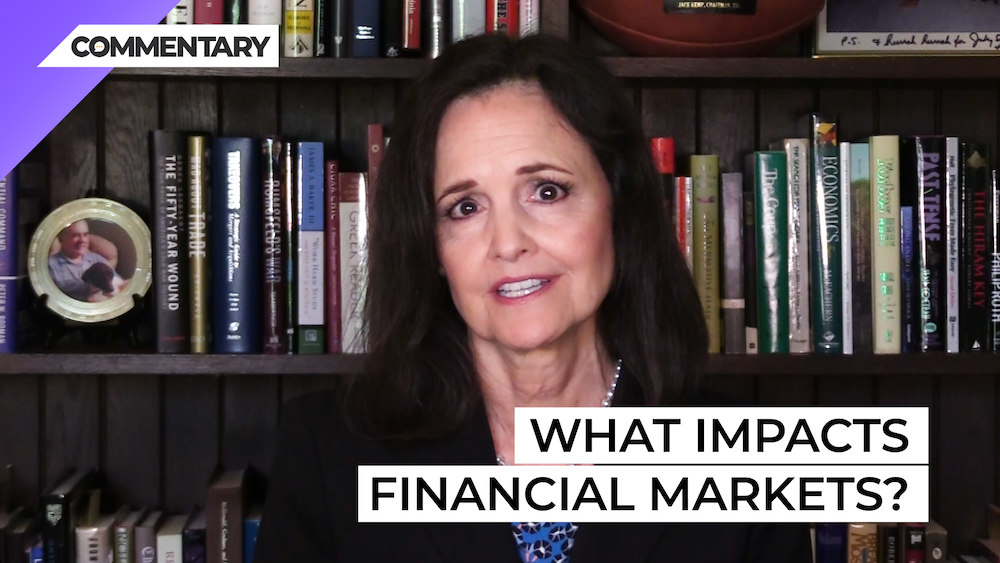
Commentary
-
Our commentary partners will help you reach your own conclusions on complex topics.
Are you the kind of person who wants to know first thing in the morning how the financial markets are doing? Do you pay close attention to every speech by a Federal Reserve official, every interview, to see how they view the economy? To find out what they’re thinking?
Many people do. Smart people. People who have learned that there is money to be made by following these things closely.
That’s because the decisions made by Federal Reserve officials have an enormous effect on the performance of financial markets.
Big investors, hedge fund managers, and a multitude of professional financial analysts who give advice—they all focus like a laser when Fed Chairman Jerome Powell comments about future economic developments. Because he might give clues about when the Fed could start reducing its monthly purchases of $120 billion in U.S. government-backed debt.
But what if you personally don’t have time to dissect all these communications, looking for hints about the Fed’s next move.
Should it really matter what an unelected monetary official says or thinks?
If Fed officials decide to continue buying huge amounts of U.S. Treasury debt and mortgage-backed securities issued by government-owned agencies, it will keep interest rates artificially low—financial markets will likely keep rising—but does it put our country back to work? Does that support productive economic growth?
Here’s the big question. Should an economy based on free markets, and free enterprise, be so dependent on the decisions of a small group of monetary officials employed by a government agency the Federal Reserve?
Should they have the authority to decide whether interest rates should be higher or lower—and the power to make it happen by creating money with a digital blip?
Our founding fathers never envisioned that; money was not meant to serve as an instrument of government policy.
The Constitution grants Congress the right to regulate the value of money in the very same sentence that it grants Congress the right to establish our nation’s official weights and measures.
Because money is meant to be a standard—a dependable measure—that works for everyone by providing clear price signals to the economy. I think America’s founders were right on the money.
-
Inflation robs us of more than wage gains
Rising prices make it hard to get by when you live on a fixed budget. Even if you manage to raise your wages, inflation that increases at a faster pace than your salary means that you end up with less purchasing power. The negative aspects of inflation go even deeper than just squeezing the margin… -
The Fed’s definition of stable prices is inflationary
Just because you’ve received a raise doesn’t mean your buying power is greater, and lately you may be feeling the financial squeeze more than ever. Monetary Economist and Straight Arrow News Contributor Judy Shelton says the government’s inflation policy has something to do with it. She’s asking: Is the Federal Reserve Right On The Money™…
Latest Stories
-
 Getty Images
Getty Images
Baltic Sea cables suffer outages as Moscow ‘shadow fleet’ ship implicated
-
 Reuters
Reuters
Israel launches strikes on Yemen in retaliation for missile attacks
-
 Getty Images
Getty Images
Health officials warn of highest whooping cough cases in a decade
-
 Getty Images
Getty Images
Biodegradable sponge could remove 99.9% of microplastics from water
-
 Getty Images
Getty Images
Alerts for international college students ramp up ahead of Trump presidency
Popular Opinions
-
In addition to the facts, we believe it’s vital to hear perspectives from all sides of the political spectrum.
Latest Opinions
In addition to the facts, we believe it’s vital to hear perspectives from all sides of the political spectrum. We hope these different voices will help you reach your own conclusions.
The opinions published in this section are solely those of the contributors and do not reflect the views of Straight Arrow News.

















Latest Commentary
We know it is important to hear from a diverse range of observers on the complex topics we face and believe our commentary partners will help you reach your own conclusions.
The commentaries published in this section are solely those of the contributors and do not reflect the views of Straight Arrow News.
Dr. Frank Luntz
Pollster and Political Analyst‘Have a little compassion’: Americans talk high holiday prices, anxiety
‘System is rigged’: Black Americans on the American Dream
‘Extremist’ or ‘phony’: Americans share who they voted for and why